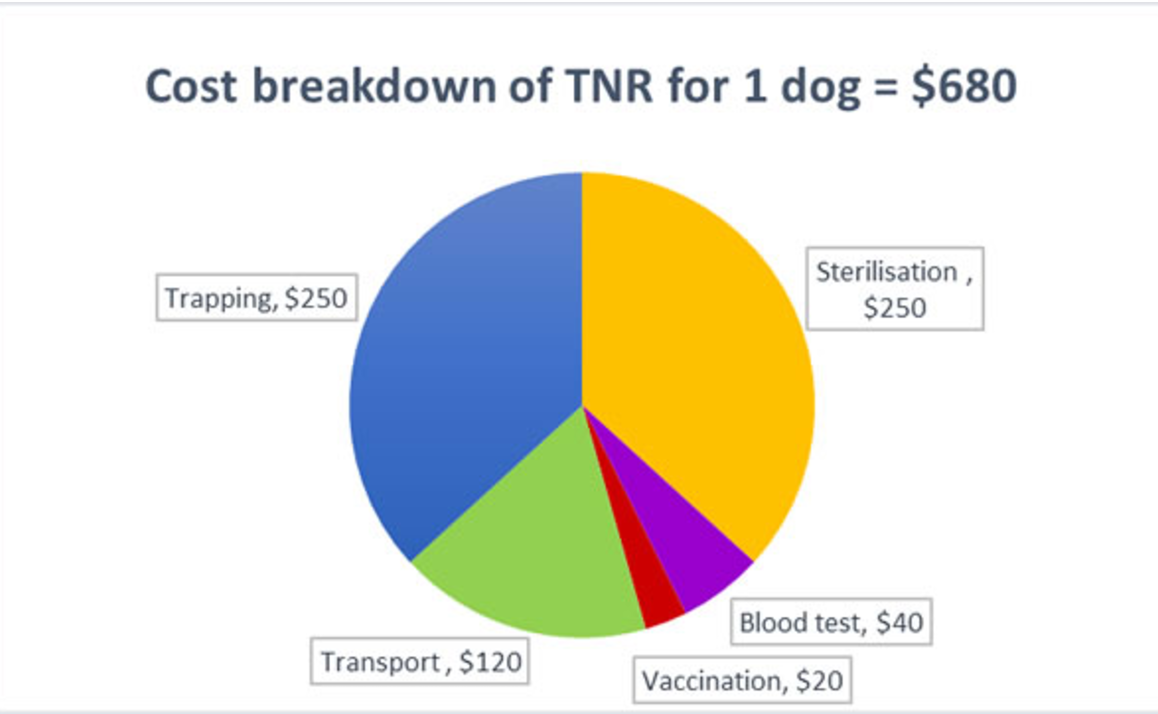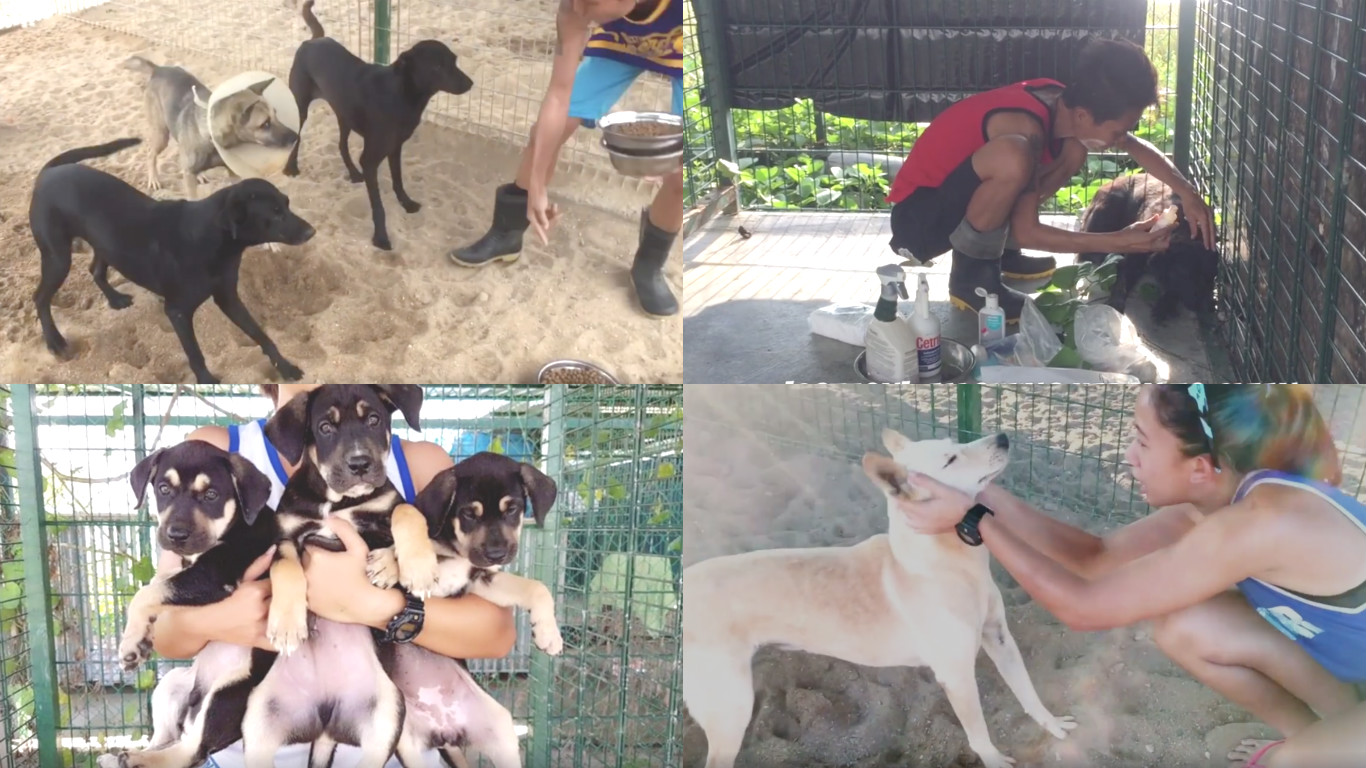In the midst of extensive discussion and debate over the need to kill stray animals roaming around Singapore, several wildlife groups here have been running some very successful projects that haven't involved culling at all.
Save Our Street Dogs (SOSD), for instance, began 2 large-scale Trap-Neuter-Release-Manage (TNRM) programmes for stray dogs in 2014:
1. Project SOUND at Pulau Ubin and the surrounding fish farms, and
2. The Jurong Island Project, in collaboration with ACRES (Animal Concerns Research & Education Society), ASD (Action for Singapore Dogs) and NAC (Noah’s Ark Cares).
Stray dog populations at both locations have declined and stabilised since then.
But first, here's what a TRNM programme is:
Trap-Neuter-Release-Manage is an approach to control stray dog populations through sterilisation, in order to manage their growth and reproduction. Sterilised stray dogs will then be released back to where they were found with close monitoring and care, that includes responsible feeding and provision of health check-ups or vaccination to keep the population disease-free.
It also happens to be more humane, cost-effective and safer than culling, as even Law and Home Affairs Minister K Shanmugam pointed out in this chart:
Now, here's how the two programmes went down:
Project SOUND at Pulau Ubin
- Sterilised 74 Ubin and fish farm dogs between October 2014 to May 2016, preventing a potential population bomb of hundreds, or even thousands, of puppies.
In case you think the math done in the infographic is an exaggeration, we'll be the first to tell you it's anything but. If anything, it shows undisputedly that the exponential natural population growth will vastly outpace indiscriminate culling:
- The population decreased from more than 100 dogs to about 70 in the past two years, as injured or ill dogs were rescued for treatment, with some being re-homed or adopted. The abandonment rate at Pulau Ubin decreased as well, with unwanted fish farm dogs taken in by SOSD for rehoming.
Jurong Island Project
According to a recent report in TODAY:
- About 70 per cent of the stray dogs on Jurong Island are sterilised, and the dog population has stabilised with far fewer puppies.
- About one-third of them (168 of the 504) were re-homed on mainland Singapore.
The dog populations at both islands are still well-monitored and taken care of by SOSD volunteers and staff as part of the last phase (Manage) of their TNRM programmes.
Holding areas are set up on Jurong Island as shelter and rehabilitation sites for the dogs with a team of four full-time and two part-time staff, together with five or six volunteers on weekends, that takes care of their daily needs.
You can get a glimpse into their new lease of life on the island with volunteers-in action through this video:
Here's how you can help
The time and effort that the volunteers devoted into this cause is really commendable but what is noteworthy is also the cost of this programme.
The total estimated monthly expenditure of Jurong Island Project costs $50,000, according to TODAY, which can be further broken down to:
Salaries: $18,000 (of 6 paid staff on the island)
Food for dogs: $14,000
Trapping: $8,000 (trapping to send the dogs for sterilisation)
Sterilisation: $6,000
Medical costs: $4,000
The cost of trapping, neutering and releasing a dog is $680. Here's the breakdown:
 Screenshot from SOSD Website
Screenshot from SOSD Website
If you'd like to help with this, you can join SOSD as a volunteer or donate to sponsor a TNR dog.
Now, that's a science-based, sustainable and effective animal population management model if we've ever seen one.
Top photo collage from screenshots of Jurong Island Project's Introductory Video
Related articles:
Here are 3 problems with what Koh Poh Koon said about AVA’s culling of the Sin Ming chickens
Economist Donald Low gives 3 good reasons why AVA shouldn’t have culled the Sin Ming chickens
Save Our Street Dogs president and ex-doctor now saves fish too
Singaporean cosmetic doctor leaves cushy job to save street dogs full-time
If you like what you read, follow us on Facebook and Twitter to get the latest updates.
If you like what you read, follow us on Facebook, Instagram, Twitter and Telegram to get the latest updates.
